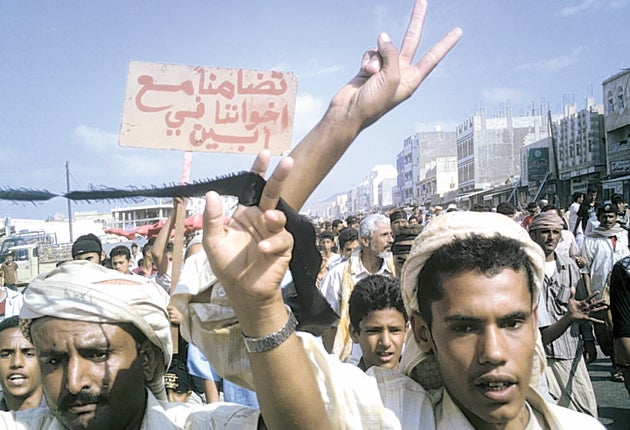US cruise missile parts found in Yemeni village where 52 died

A US cruise missile armed with cluster ammunition was used in an attack in Yemen in December which resulted in the deaths of 52 people, more than half of them women and children, according to a human rights watchdog.
The Yemeni government insisted their forces alone carried out the strike on an al-Qa'ida training camp in the Abyan region. US authorities backed the claim that insurgents had been attacked but officially denied direct involvement in the attack.
However, Amnesty International has now released photographs of missile parts from the attack which appear to show that it was a BGM-109D Tomahawk cruise missile designed to be launched from a warship or submarine. Further images reveal BLU 97 A/B cluster munitions which spray steel fragments for 150 meters along with burning zirconium for igniting buildings. The Yemeni government does not possess cruise missiles, which are part of the arsenal of US Navy vessels patrolling off the Horn of Africa and in the Arabian Sea.
The Convention on Cluster Munitions has been signed by 106 states and ratified by 35. However, neither the US or Yemen are signatories. Weapons analysts point out that bomblets have maimed and killed civilians who have found them.
Yemen has become a battleground between the international jihad and the West. Special forces and intelligence officials from several Nato countries, including the UK and US, have beent in the country. The Americans are hunting, in particular, Anwar al-Awlaki, a radical cleric who is said to have been a mentor to the "underpants bomber", Umar Farouk Abdulmutallab, who tried to blow up a transatlantic airliner and Major Nidal Malik Hasan, of the US Army who shot dead 13 people at Fort Hood in Texas.
A Yemeni parliamentary committee investigating the raid at al-Ma'jalah concluded that 41 of the dead were civilians, 21 of them children and 14 women. Survivors denied any links with insurgents. The parliamentary committee asked the Yemeni government to open a judicial inquiry into the killings. Six months on, there is no sign of that happening although the authorities in Sanaa declared that at least 14 of the dead were members of al-Qa'ida plotting to carry out terrorist attacks.
One of the al-Qa'ida dead, it was claimed, was its supposed leader in Yemen, Qaaim al-Raymi. However, US officials said later that he appeared to have escaped the missile strikes.
Amnesty International says it obtained the photographs from a confidential source in March and delayed their release to check the contents with independent experts and "provide the US government with time to respond to the evidence".
The organisation's Middle East and North Africa deputy director, Phil Luther, said: "A military strike of this kind against alleged militants without an attempt to detain them is at the very least unlawful.
"Based on the evidence provided by these photographs, the US government must disclose what role it played in the al-Ma'jalah attack, and all governments involved must show what steps they took to prevent unnecessary deaths and injuries."
The US secret war
While running for the White House, Barack Obama deplored the excesses of George W Bush's "war on terror" and he and his administration have even stopped using that term since coming into office.
However, the secret war being waged by the US against insurgents has actually vastly increased in both scope and in size under the new President, with special operations forces now operating in more than 75 countries around the world from Colombia to the Philippines.
There has been a marked increase in the number of drone attacks against al-Qa'ida and Taliban targets inside Pakistan and special forces operations in Somalia and the Yemen. In all three countries authorities have claimed that major figures involved in the international jihad have been eliminated.
The US recently changed its laws to allow the assassination of US citizens who are terrorist suspects abroad. It was aimed specifically at future attempts to target Anwar al-Awlaki, a fundamentalist preacher and fugitive who supposedly mentored the "underpants bomber" Umar Farouk Abdulmutallab and US Army Major Nidal Malik Hasan, a psychiatrist, who killed 13 people at Fort Hood in Texas. He is believed to be hiding in Yemen.
Behind the softly spoken words about reaching out to international adversaries and healing wounds, the Obama administration has proved to be as ruthless at hunting down America's enemies as any of its predecessors.
Join our commenting forum
Join thought-provoking conversations, follow other Independent readers and see their replies
Comments